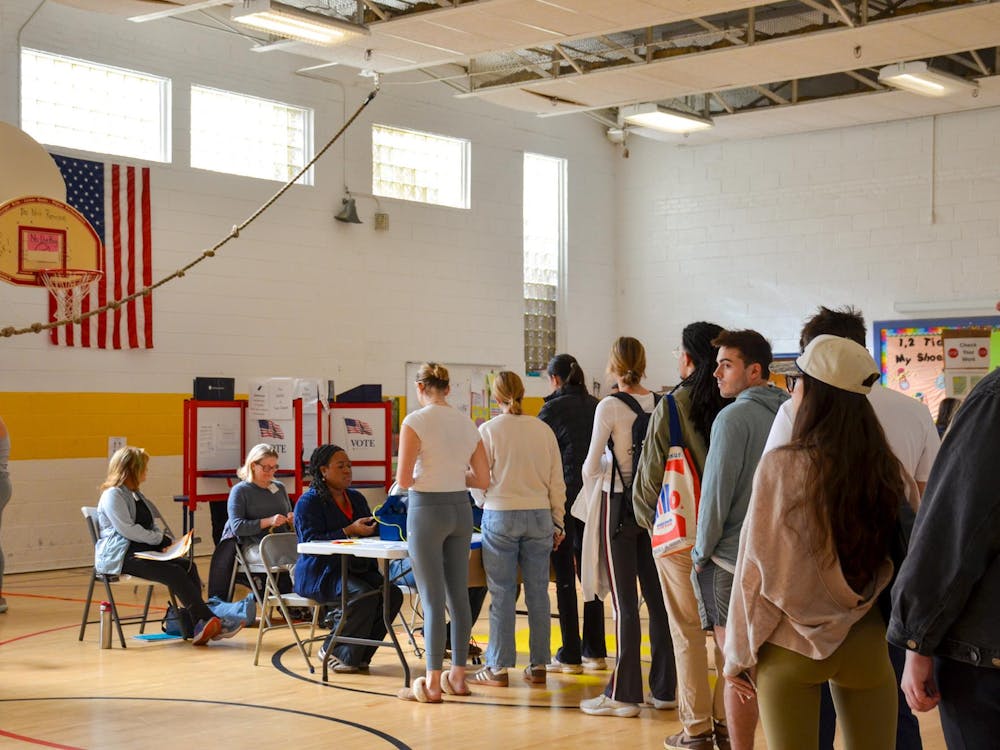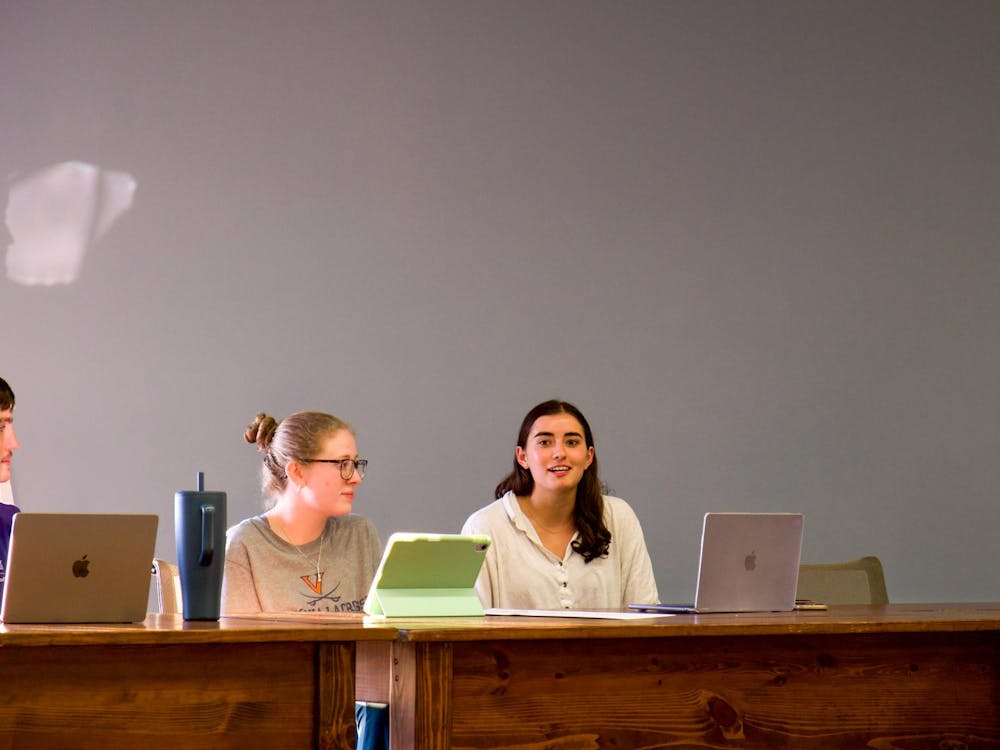University Architecture students enrolled in PLAC 555, "Community Food Systems," presented their findings on local and global food sources within Charlottesville to city residents and vendors at City Hall yesterday. The students reported that local farmers often struggle because of increased oil prices and weather fluctuations and noted that often for businesses, products from local farms are not a viable option financially.
Tim Beatley and Tanya Denckla Cobb, joint instructors of the course, introduced the presentation by discussing the "glocal" phenomenon of the want to support local producers combined with the inability to disconnect from the global community. The Architecture students examined this concept, analyzing local farmers, a grocer, a diner and University Dining Services, among others, in an effort to determine the origins of the inputs for these food suppliers and to calculate approximate "food miles" for various products.
Fourth-year Architecture students Linda Bartusiak and Laura Sparks studied University Dining Services, which, they reported, purchases 80 percent of its food from Sysco, an industrial foodservice provider. Bartusiak said she and Sparks chose what they believed was a typical meal from Newcomb Hall and traced the sources of the ingredients in that meal. In their presentations, they claimed all of the ingredients came from the United States except peppers, which were traced back to Mexico. In total, they reported, there were about 7,700 "food miles" in the meal.
In their presentation, Bartusiak and Sparks cited limitations the University faces in moving toward using local producers, such as meeting "unique nutritional needs" and the sheer amount of food University Dining must provide on a daily basis.
"If U.Va. were to go entirely local it would take all the local food," Bartusiak said. "It would kind of drain the [local food] movement of its momentum."
The University is making attempts to increase local, sustainable, organic and animal welfare products, said Dining Services Director Brent Beringer, who attended the presentation, adding that 11 percent of University Dining products in 2007 were included in that category, an increase from 4 percent in 2006. He noted that in 2008 he would like to see that number increase to the 20-percent range.
Beringer added that University Dining has been working with students to improve "Green Dining" options through initiatives such as providing certified humane shell eggs and certified fair trade coffee in residential dining halls and also has been looking to add "more and more local items" to the dining halls.
Denckla Cobb noted that local food is important for nutrition because "there are studies that show that food that travels less has more nutrients and is more nourishing."
Creating a larger market for local farmers to sell their produce, Denckla Cobb added, will help preserve the local countryside by preventing farmers from selling their land for development.
"It really has to do with our landscape," Denckla Cobb said. "If we have a system where farmers can make money then we'll have a better chance of retaining our rural landscape."
Beringer acknowledged the benefits of increasing the sale of local food products but also noted such changes would be costly.
"There are very few of these things we are able to do that are the same" as the current cost, Beringer said, adding that the food sold in the Fine Arts Cafe in Campbell Hall, which features many local, organic and fairly traded products, is more expensive than offerings from other locations on Grounds.






